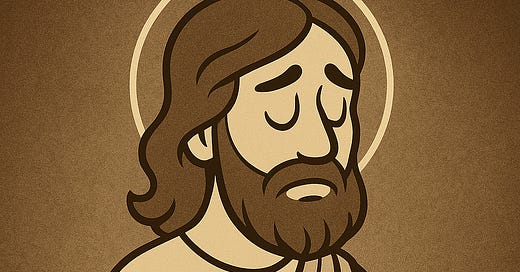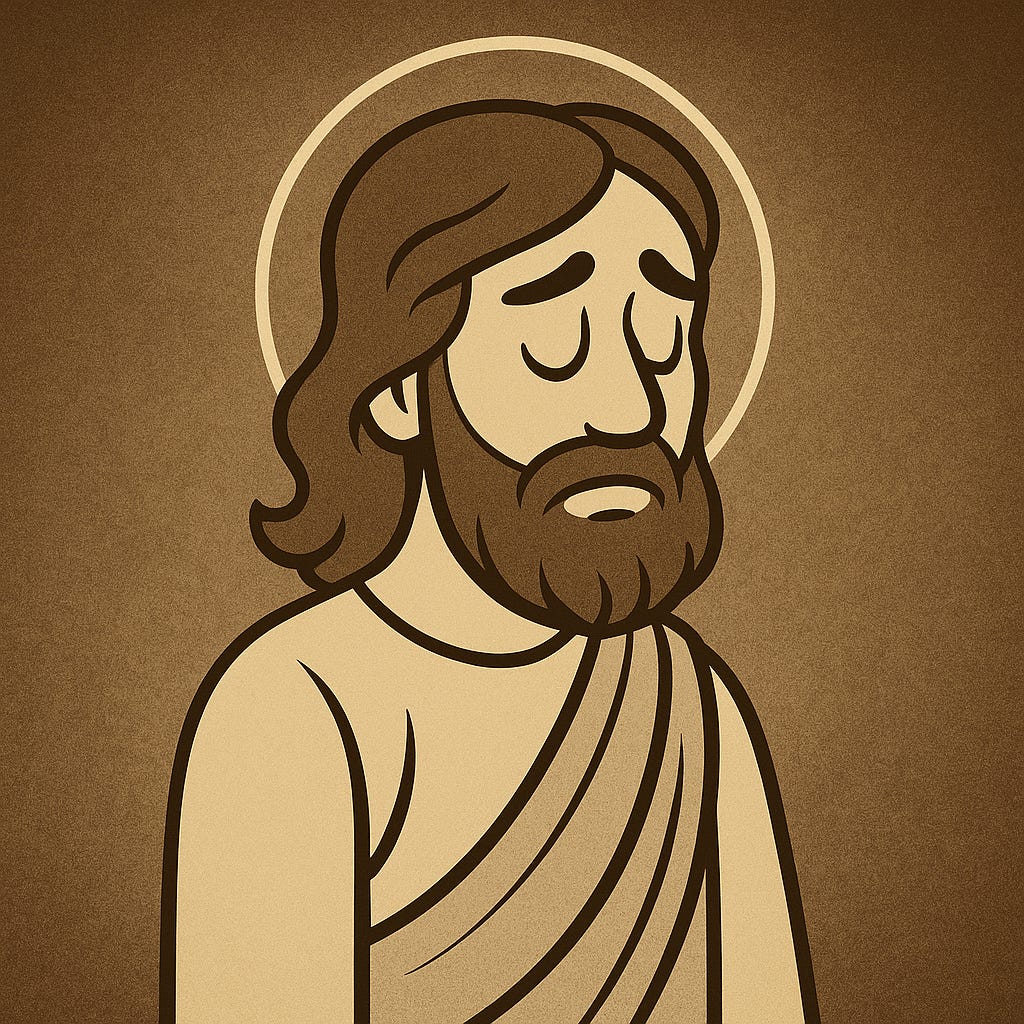I grew up reciting “Father, Son, and Holy Spirit” without a second thought.
It was presented as sacred — a mystery too profound to question.
But once I finally looked deeper, I realized the Trinity might be Christianity’s most glaring contradiction.
Not a divine truth.
A theological patchwork — stitched together by councils, politics, and centuries of confusion.
Jesus Never Taught the Trinity
Ask yourself:
If the Trinity is so central to salvation, why didn’t Jesus teach it?
In the Gospels, Jesus points constantly to God — the Father — not to himself as co-equal.
He prays to God. He submits to God’s will. He calls himself God's messenger, not God's equal.
The word Trinity doesn’t appear in the Bible.
Neither does the idea of "three co-equal persons in one essence."
It wasn’t until centuries later — long after Jesus — that Christian leaders, under political pressure, hammered out the doctrine of the Trinity at the Council of Nicaea.
Constantine didn’t convene Nicaea because he cared about theological purity.
He wanted unity.
And unity demanded agreement, even if it meant forcing contradictions into creeds.
When bishops couldn’t agree, imperial power tipped the scales.
The result was a carefully constructed slogan: "one God in three persons."
A slogan designed less to reveal divine mystery, and more to hold a fracturing empire together.
The early Church didn’t receive the Trinity from heaven.
It negotiated it — and then enforced it.
“It’s a Mystery” Isn’t an Answer
When I started asking questions about the Trinity, the response was always the same:
"It’s a holy mystery. We’re not meant to understand it."
But labeling contradictions as "mystery" isn't profound.
It’s an admission that the logic doesn’t hold.
Three distinct conscious persons somehow comprising a single being?
Father, Son, and Spirit fully God, yet not three Gods?
It isn’t a profound paradox.
It’s theological doublethink.
A real mystery invites exploration.
A contradiction demands you stop thinking.
If your belief can only survive by turning off reason, maybe it’s not divine truth you're defending.
Maybe it’s just tradition, polished until it gleams.
God Sacrificing Himself — to Himself?
At the heart of Christianity lies an even stranger puzzle:
God, sacrificing Himself, to Himself, to satisfy a law He created, to forgive humanity for flaws He designed.
If Jesus is fully God, the crucifixion becomes an exercise in divine performance:
God punishing Himself to save His creation from His own wrath.
If Jesus is distinct enough from God to be sacrificed to God, then Christianity slips into polytheism — exactly what it claims to reject.
Apologists try to smooth this over with the Trinity: "One God in three persons."
But rearranging words doesn’t solve the core problem.
Either God punished Himself, making the whole system absurd.
Or two distinct beings interacted — making it polytheistic.
And the more you press into it, the more the whole story feels like cosmic theater.
A morality play, staged for an audience taught not to question the script.
The Cost of Accepting Contradictions
I get it.
The emotional pull of the Trinity — the beauty of sacrifice, the hope of redemption — is powerful.
I felt it too.
But if truth matters, it has to survive scrutiny.
And when I finally allowed myself to question the story, it collapsed.
The Trinity doesn’t survive because it’s a divine mystery.
It survives because it’s insulated from honest examination.
Because it teaches you early on that doubt is dangerous, that confusion is a sign of holiness, and that reason must bow to tradition.
But real truth doesn’t fear questions.
It doesn’t need contradictions dressed up as sacred mysteries to survive.
If God is real, reason would lead us closer to Him — not force us to suspend it.
Final Reflection: Truth Doesn’t Require Trickery
You don’t need to perform mental gymnastics to find truth.
You don’t need to defend contradictions to be spiritual.
You don’t need to believe that 3 = 1 to have meaning.
If a belief demands that you violate the very tools — reason, logic, honesty — that are supposed to help you find truth, maybe the problem isn’t you.
Maybe the problem is the story.
👉🏻 This newsletter stays free because a small group of supporters makes it possible.
If you value posts like this — clear, sharp, fearless — please consider subscribing.
$6.66/month.
Because truth doesn’t fear scrutiny. It invites it.




